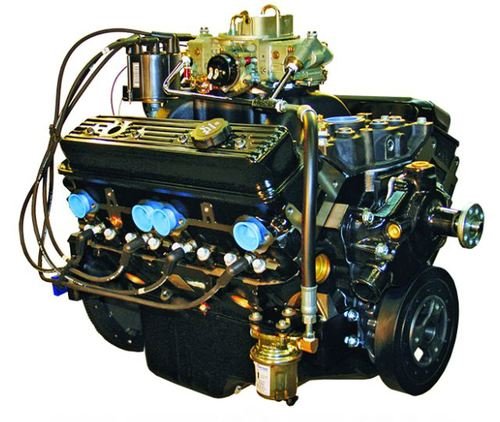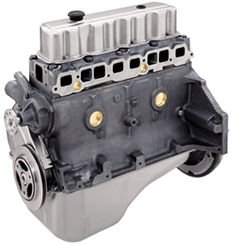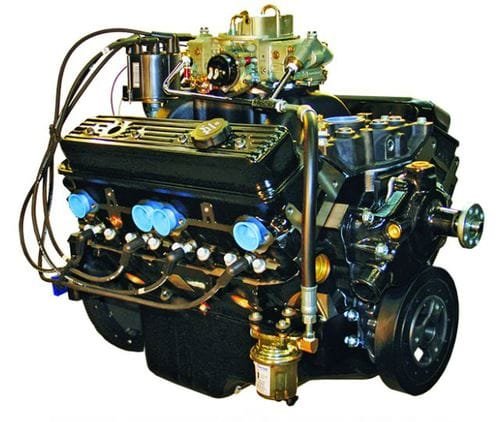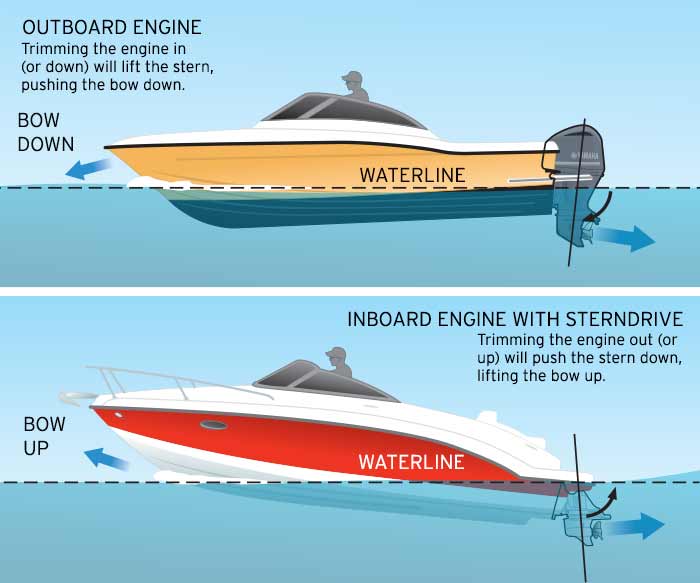Are you a boating enthusiast who loves to customize your boat’s engine for optimal performance? If so, it’s important to have a good grasp of the legalities surrounding boat engine modification. In this article, we will explore the legal aspects of modifying boat engines, highlighting the importance of adhering to regulations to ensure safety and compliance. Whether you are considering a simple tweak or a complete engine overhaul, understanding the legalities will help you make informed decisions and enjoy your boating experiences without any legal troubles. So, let’s dive in and uncover the important factors that come into play when modifying your boat’s engine.
What is boat engine modification?
Boat engine modification refers to any changes or alterations made to a boat’s engine system in order to enhance its performance, efficiency, or aesthetics. These modifications can range from simple upgrades such as installing a more powerful engine or adding a sound system, to more complex changes like modifying the exhaust or fuel systems. However, it is important to understand that not all modifications are legal or safe, and there are certain regulations and guidelines that govern these alterations.
Safety considerations
When considering boat engine modification, it is crucial to prioritize safety above all else. One of the primary safety concerns is the impact that modifications can have on the boat’s stability. Changing the engine’s specifications can potentially affect the weight distribution and balance of the boat, which may result in reduced stability and increased risk of capsizing or accidents. Therefore, it is essential to carefully assess the potential impact on stability before proceeding with any modifications.
Another safety aspect to consider is the impact on fuel efficiency and consumption. While some modifications may promise increased performance, it is important to evaluate whether these upgrades compromise the boat’s fuel efficiency. Changes in fuel consumption can directly impact the range and overall safety of the vessel, so it is crucial to strike a balance between enhanced performance and practicality.
Lastly, understanding the operating and maintenance procedures for any modifications is vital for ensuring safe usage. Different modifications may require specific instructions or maintenance routines to guarantee optimal performance and avoid potential hazards. It is essential to follow the manufacturer’s guidelines and seek professional assistance when necessary to ensure the safe operation of the modified engine.

Understanding the applicable laws and regulations
Before embarking on any boat engine modification project, it is crucial to have a clear understanding of the relevant laws and regulations that govern such alterations. These laws can vary based on federal, state, and local jurisdictions, and it is important to comply with all applicable rules to avoid legal complications. Failure to adhere to these regulations can result in fines, penalties, and even voiding of insurance coverage.
Federal regulations
At the federal level, boat engine modifications are subject to certain regulations set by agencies such as the United States Coast Guard (USCG) and the Environmental Protection Agency (EPA). The USCG establishes safety requirements, including stability standards, which must be complied with to ensure the safety of both the passengers and the vessel. The EPA, on the other hand, regulates emissions from boat engines to minimize pollution. It is essential to be aware of and adhere to these federal regulations when considering any modifications.
State regulations
In addition to federal regulations, various states have their own specific laws and guidelines regarding boat engine modifications. These regulations can pertain to aspects such as noise emissions, boating safety, and environmental concerns. It is imperative to research and understand the specific requirements of the state in which the boat will be operated to ensure compliance with all applicable laws.
Local regulations
Certain municipalities, counties, or areas may also have additional regulations that need to be considered when modifying a boat engine. These local regulations can vary widely and might cover aspects such as operating restrictions, water pollution prevention, and noise control. It is essential to check with the local authorities or boating agencies to ensure compliance with these regulations before making any modifications.
Certification and compliance
Certification and compliance play a significant role in boat engine modification. To ensure the modifications meet safety and environmental standards, there are specific certifications and compliance measures that need to be followed.
Manufacturer certifications
Many boat engine manufacturers offer certified modification options that comply with all relevant safety, emissions, and performance standards. Choosing modifications that come with manufacturer certifications provides assurance that the alterations are approved by professionals who understand the specifics of the engine and its compatibility with the boat. Opting for certified modifications gives owners peace of mind knowing that their boat is in compliance with applicable regulations.
Environmental certifications
When it comes to modifications that impact the emissions of a boat’s engine, it is crucial to consider environmental certifications. These certifications ensure that the modified engine meets certain emission standards, thus reducing the vessel’s impact on the environment. By choosing modifications that have obtained environmental certifications, boat owners can actively contribute to the preservation of water quality and overall environmental well-being.
Importance of professional assistance
Engaging the expertise of a certified marine mechanic is vital when considering any boat engine modifications. These professionals possess the knowledge and experience necessary to guide owners through the process while ensuring compliance with all legal and safety requirements.
Choosing a certified marine mechanic
When seeking assistance for boat engine modifications, it is important to select a certified marine mechanic who specializes in the specific type of engine being modified. These professionals have the necessary training and expertise to evaluate the feasibility of requested modifications, ensure compliance with regulations, and perform the necessary installation and adjustments with precision. By choosing a certified marine mechanic, boat owners can have confidence in the quality and safety of the modifications made.
Understanding warranty implications
Another aspect to consider when modifying a boat engine is the impact on warranties. Most boat engines come with manufacturer warranties that cover certain repairs or replacements within a specified time period. It is crucial to consult the manufacturer’s warranty terms and conditions, as well as seek guidance from the certified marine mechanic, to understand how modifications can affect these warranties. Some modifications may void certain aspects of the warranty, so it is essential to be aware of the potential implications before proceeding.
Consequences of illegal modifications
Engaging in illegal boat engine modifications can have serious repercussions. It is essential to understand the potential consequences before undertaking any alterations that may violate applicable laws or regulations.
Fines and penalties
Illegal modifications can result in fines and penalties imposed by federal, state, or local authorities. These fines can vary depending on the severity of the violation and can quickly escalate, leading to significant financial burdens. By complying with all applicable regulations and seeking professional advice, boat owners can avoid these penalties and the stress associated with legal consequences.
Voiding insurance coverage
Engaging in illegal modifications can also lead to the voiding of insurance coverage. Insurance policies for boats typically have clauses that exclude coverage for damages or accidents resulting from illegal modifications. By invalidating insurance coverage, boat owners risk significant financial losses in the event of an accident or damage. It is crucial to review the insurance policy and consult with the insurance provider to understand the coverage implications before making any modifications.
Liability in case of accidents
In the unfortunate event of an accident, boat owners may be held liable for any damages or injuries caused by illegal modifications. If the modifications are found to have contributed to the accident or exacerbated the damages, the boat owner may face legal action and bear the financial responsibility for the aftermath. It is essential to prioritize safety and legality to minimize the risks of accidents and potential liabilities.

Common modifications and their legal status
There are several common modifications that boat owners often consider for their engine systems. Understanding the legal status of these modifications is crucial to ensure compliance with applicable regulations.
Increased horsepower
Increasing the horsepower of a boat’s engine is a popular modification choice for those seeking enhanced performance. However, it is important to check the legality of such modifications, as different jurisdictions may have restrictions on horsepower upgrades. It is recommended to consult with a certified marine mechanic to determine if increasing the horsepower is permissible and safe for the specific vessel.
Sound system upgrades
Many boat owners enjoy adding sound system upgrades to enhance their boating experience. However, it is important to consider noise pollution regulations before installing powerful speakers or amplifiers. Local regulations may have specific limitations on noise levels, especially in quiet or residential areas. It is essential to ensure that any sound system modifications comply with these regulations to avoid potential penalties or complaints from nearby residents.
Exhaust modifications
Modifying the exhaust system can significantly impact both the performance and environmental impact of a boat’s engine. However, it is crucial to understand the legal restrictions and requirements regarding exhaust modifications. In some areas, strict emission standards are in place to minimize air pollution caused by boat engines. It is important to consult with a certified marine mechanic and comply with all applicable regulations to ensure the modifications are legal and environmentally responsible.
Fuel system modifications
Modifying the fuel system, such as installing aftermarket fuel injectors or fuel pumps, is another common practice among boat owners. However, it is necessary to adhere to safety and environmental regulations when undertaking such modifications. For instance, modifications that increase fuel flow must be accompanied by appropriate adjustments to ensure the engine operates within safe parameters. It is important to consult with a certified marine mechanic who can guide owners in making the right modifications that comply with all relevant regulations.
Permits and inspections
Certain modifications to boat engines may require permits or inspections to ensure compliance with safety and environmental standards.
Obtaining permits for modifications
Depending on the nature and extent of the modifications, permits may be required from local or state authorities. These permits are typically obtained by submitting relevant documentation, including detailed plans and specifications of the proposed modifications. It is essential to research the specific requirements in the respective jurisdiction and comply with the permit issuance process to avoid legal complications.
Required inspections for modified engines
In addition to permits, modified engines may also be subject to inspections to verify compliance with safety and environmental standards. These inspections are typically conducted by certified professionals or authorized agencies who assess the modifications for adherence to regulations. It is important to schedule and pass these inspections to ensure the legality and safety of the boat’s modified engine.

Environmental impact and regulations
Boat engine modifications can have a significant impact on the environment, particularly in terms of emissions and water pollution. Understanding the relevant regulations and environmental considerations is essential to minimize the negative effects on the ecosystem.
Emission standards
Various federal, state, and local regulations are in place to limit the emissions from boat engines and mitigate their impact on air quality. It is crucial to consider these emission standards when making modifications that affect the engine’s exhaust system or emissions. Compliance with these standards not only helps protect the environment but also ensures adherence to legal requirements.
Water pollution regulations
Boat engine modifications can potentially contribute to water pollution through fuel or oil leaks, improper exhaust systems, or other factors. It is essential to adhere to water pollution regulations set forth by federal, state, and local authorities. Compliance may involve using appropriate fuel and oil containment systems, installing effective exhaust treatment mechanisms, and practicing responsible boating habits to prevent any harmful discharge into water bodies.
Record keeping and documentation
Maintaining accurate and up-to-date records of boat engine modifications and their compliance is crucial for various reasons, including legal compliance, warranty purposes, and potential future sales.
Maintaining records of modifications
Keeping detailed records of all modifications made to the boat engine is an important practice. These records should include information such as the date and nature of the modifications, the components installed or replaced, and any relevant certifications or compliance documentation. Proper record keeping helps ensure legal compliance, facilitate warranty claims, and provide valuable information to potential buyers in the future.
Keeping documentation of compliance
It is equally important to keep documentation of compliance with all applicable laws and regulations. This includes permits, inspection reports, and any certifications obtained throughout the modification process. These documents serve as proof of compliance and can be essential in case of any legal or insurance-related issues. By maintaining proper documentation, boat owners can demonstrate their commitment to following the law and taking responsibility for their modifications.
In conclusion, boat engine modification can be a rewarding endeavor, offering enhanced performance, efficiency, and aesthetics. However, it is crucial to approach these modifications with a comprehensive understanding of the legalities involved. From safety considerations and understanding applicable laws and regulations to the importance of professional assistance and compliance, there are various factors to consider. By prioritizing safety, following the guidance of certified marine mechanics, and adhering to all relevant regulations, boat owners can enjoy the benefits of modified engines while ensuring legal compliance and environmental responsibility.



